April 20, 2022 •
Super PACs Must Report LLC Attributions
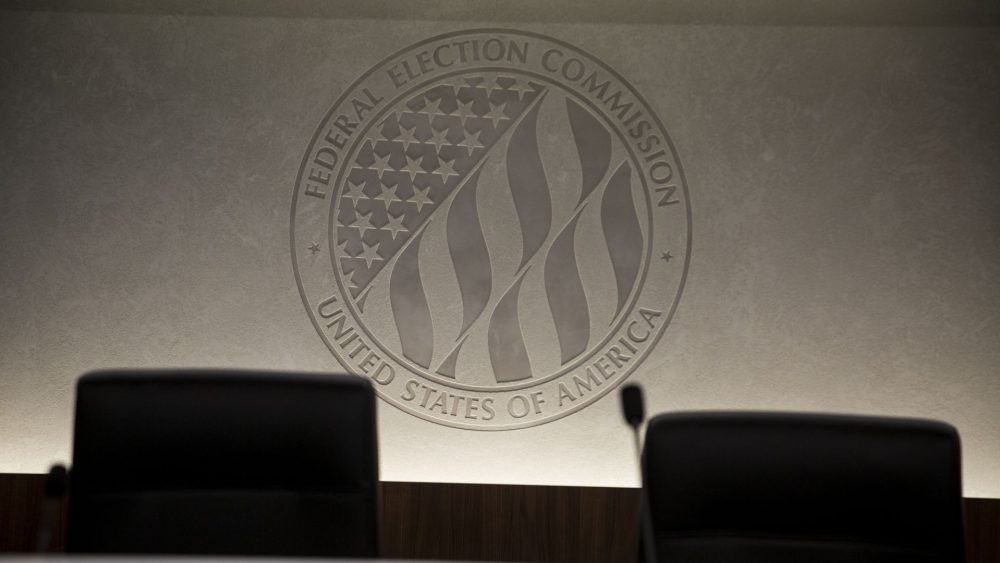
FEC; Photo: Sarah Silbiger/CQ Roll Call
“Going forward,” the Federal Election Commission (FEC) will require disclosure requirements for contributions received from limited liability companies (LLCs) be applied to independent expenditure-only political committees (i.e., Super PACs) in the same manner in which they are applied to all […]
“Going forward,” the Federal Election Commission (FEC) will require disclosure requirements for contributions received from limited liability companies (LLCs) be applied to independent expenditure-only political committees (i.e., Super PACs) in the same manner in which they are applied to all other political committees.
On April 15, four of the six commissioners issued a “Statement of Reasons” for their conclusion of a closeout of a complaint. In the statement, which refers to Matters Under Review (MUR) 7454, Chairman Allen Dickerson, Vice Chair Steven T. Walther, Commissioner Shana M. Broussard, and Commissioner Ellen L. Weintraub assert, “contributions from LLCs to committees must be attributed pursuant to Commission regulations, and those regulations apply to all committees, including [Super PACs]. The Commission will apply that understanding going forward, and may seek civil penalties in appropriate future cases.”
In MUR 7454, the Super PAC in question had not obtained the required attribution information for two contributions made by LLCs. The Super PAC attributed the contributions only to the LLCs. Regulations require committees to report certain attribution information for contributions from LLCs.
An LLC that has a single natural-person member and is not taxed as a corporation must be attributed only to the natural person member, and not the LLC. A contribution by an LLC that is disregarded for tax purposes and does not have a single natural-person member is treated as a partnership contribution; and, a partnership contribution must be attributed to both the partnership and each partner, either in proportion to his or her share of the partnership profits or by agreement among the partners.
In prior cases premised on similar facts, the FEC could not agree whether, following the Citizens United and SpeechNow.org v. FEC court decisions, LLC reporting rules and conduit contribution rules applied to contributions made to the newly formed Super PACs authorized by those judicial rulings. The commissioners determined that “with the passage of time, [Super PACs] have become a regular part of the campaign finance landscape, and…there is no longer a lack of clarity concerning the application of LLC reporting rules and conduit contribution rules in these circumstances.”
Because the FEC has not previously made this conclusion under similar cases, they did not seek a civil penalty against the Super PAC.
November 7, 2019 •
Alaska Judge Orders Campaign Contribution Limits Be Reinstated for Independent Groups
In a historic ruling, the nonprofit group Equal Citizens obtained a judicial ruling that, for the first time since Citizens United, could restore limits on donations to independent groups and Super PACs. Anchorage Superior Court Judge William F. Morse ordered […]
In a historic ruling, the nonprofit group Equal Citizens obtained a judicial ruling that, for the first time since Citizens United, could restore limits on donations to independent groups and Super PACs.
Anchorage Superior Court Judge William F. Morse ordered the state to impose limits on donations to political groups in Alaska.
Morse said that the Alaska Public Offices Commission (APOC), which handles election enforcement, should reinstate enforcement of the annual per person $500 contribution limit to independent expenditure groups.
In Alaska, independent expenditure groups function like Super PACs. Groups can advocate and raise money for a candidate while remaining unaffiliated with the candidate.
Attorneys for the Alaska Department of Law, appearing on behalf of APOC, appealed the case to the Alaska Supreme Court.
The hope for Equal Citizens is the case makes its way to the U.S. Supreme Court to clarify aspects of Citizens United and how limits are enforced on contributions made to political groups.
May 20, 2019 •
Supreme Court Declines to Hear Corporate Contribution Case
On Monday, the Supreme Court of the United States announced it would decline to hear a challenge to a Massachusetts law. The law in question bans corporate contributions to campaigns, parties and candidate-focused political action committees. The Massachusetts Supreme Judicial […]
On Monday, the Supreme Court of the United States announced it would decline to hear a challenge to a Massachusetts law.
The law in question bans corporate contributions to campaigns, parties and candidate-focused political action committees.
The Massachusetts Supreme Judicial Court unanimously rejected the challenge, brought by 1A Auto Inc. and 126 Self Storage Inc., in September.
The suit claimed disparate treatment by banning for-profit corporate contributions while allowing significant contributions by unions and nonprofits.
After the Supreme Court ruling in Citizens United, state law was updated to allow corporate spending for independent expenditures but not political contributions.
Massachusetts Attorney General Maura Healey applauded Monday’s decision not to hear the case for the integrity of state elections.
Opponents of the law are hopeful the Supreme Court will take up the issue in another case.
February 22, 2019 •
Supreme Court Won’t Hear Montana Case
This week, the Supreme Court of the United States declined to hear a case challenging the state’s Disclose Act, leaving in place a lower court ruling of constitutionality. The Disclose Act requires more heightened reporting by groups seeking to influence […]
 This week, the Supreme Court of the United States declined to hear a case challenging the state’s Disclose Act, leaving in place a lower court ruling of constitutionality.
This week, the Supreme Court of the United States declined to hear a case challenging the state’s Disclose Act, leaving in place a lower court ruling of constitutionality.
The Disclose Act requires more heightened reporting by groups seeking to influence elections, commonly referred to as dark-money groups.
The campaign disclosure act, challenged by Montanans for Community Development on first amendment grounds, has been an important policy for Gov. Steve Bullock and his administration.
This comes at a time when the Montana House of Representatives is considering House Resolution 2, a bipartisan resolution urging Congress to propose a constitutional amendment to overturn the U.S. Supreme Court’s 2010 Citizens United decision.
On Election Day, Massachusetts voters passed Question 2, paving the way for campaign finance reform. The ballot measure establishes a citizen commission tasked with producing a report on the state of political spending in the Massachusetts and promoting an amendment […]
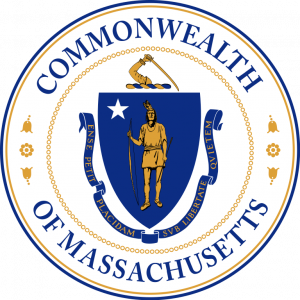 On Election Day, Massachusetts voters passed Question 2, paving the way for campaign finance reform.
On Election Day, Massachusetts voters passed Question 2, paving the way for campaign finance reform.
The ballot measure establishes a citizen commission tasked with producing a report on the state of political spending in the Massachusetts and promoting an amendment to the United States Constitution. The commission would also report on whether the state can legally limit corporate contributions.
Proponents of the ballot question hope it will help in overturning the 2010 decision in Citizens United, while those against it argued the measure was a protest vote and created a new governmental body solely for symbolic gesture.
The measure passed 71.3 percent to 28.69 percent, with 81.8 percent of precincts reporting.
Next month, Massachusetts voters will decide on a ballot measure seeking to cap corporate spending in elections. Ballot Question 2, if passed, will create a commission made up of citizens tasked with producing a report on the state of political […]
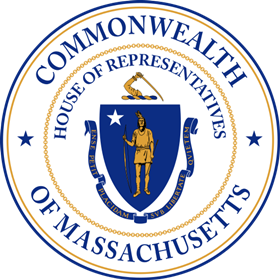 Next month, Massachusetts voters will decide on a ballot measure seeking to cap corporate spending in elections.
Next month, Massachusetts voters will decide on a ballot measure seeking to cap corporate spending in elections.
Ballot Question 2, if passed, will create a commission made up of citizens tasked with producing a report on the state of political spending in Massachusetts and promoting an amendment to the United States Constitution. The commission would also report on whether the state can legally limit corporate contributions.
The ballot measure has been characterized as a way for the state to show their opposition to the Supreme Court’s 2010 Citizens United decision.
The group advocating for Ballot Question 2 envisions a 28th Amendment removing the ability of corporations, labor unions, super PACs and other wealthy interests from financially influencing political campaigns.
To pass, an amendment to the U.S. Constitution would require approval by two-thirds of the U.S. House and Senate and must also be ratified by 38 states.
On October 4, 2018, the Anchorage Superior Court heard witnesses in the formal appeal of an Alaska Public Office Commission (APOC) decision allowing unlimited contributions to independent expenditure groups. Several citizens, represented by the nonprofit group Equal Citizens, claim the […]
 On October 4, 2018, the Anchorage Superior Court heard witnesses in the formal appeal of an Alaska Public Office Commission (APOC) decision allowing unlimited contributions to independent expenditure groups.
On October 4, 2018, the Anchorage Superior Court heard witnesses in the formal appeal of an Alaska Public Office Commission (APOC) decision allowing unlimited contributions to independent expenditure groups.
Several citizens, represented by the nonprofit group Equal Citizens, claim the contributions are pursuant to a 2006 Alaska State law.
APOC relied on the application of Citizens United when it rejected the original claim.
August 21, 2018 •
Montana Contribution Limits Head to U.S. Supreme Court
Attorney James Bopp, Jr. has asked the U.S. Supreme Court to strike down Montana’s contribution limits, arguing they are an unconstitutional limit on free speech. Bopp was an attorney in the well-known Citizens United case, which led to the U.S. […]
 Attorney James Bopp, Jr. has asked the U.S. Supreme Court to strike down Montana’s contribution limits, arguing they are an unconstitutional limit on free speech.
Attorney James Bopp, Jr. has asked the U.S. Supreme Court to strike down Montana’s contribution limits, arguing they are an unconstitutional limit on free speech.
Bopp was an attorney in the well-known Citizens United case, which led to the U.S. Supreme Court ruling corporations cannot be prohibited from spending on elections.
Montana’s limits were struck down in 2012 and again in 2015, but the 9th U.S. Circuit Court of Appeals ruled last October the limits are constitutional.
The U.S. Supreme Court has not yet said if it will take up the case.
October 12, 2017 •
St. Petersburg City Council Passes Controversial Campaign Finance Law
City lawmakers have passed an ordinance to limit the influence of independent expenditures in local elections. By a 6-2 vote, City Council approved a measure to limit contributions from individuals to PACs involved in city elections and to restrict contributions […]
 City lawmakers have passed an ordinance to limit the influence of independent expenditures in local elections.
City lawmakers have passed an ordinance to limit the influence of independent expenditures in local elections.
By a 6-2 vote, City Council approved a measure to limit contributions from individuals to PACs involved in city elections and to restrict contributions from foreign-owned corporations with U.S.-based subsidiaries.
Supporters of the ordinance hope it will be a model law for other cities to stem the flow of money in politics after Citizens United.
Many believe a legal challenge is likely, but the drafters of the ordinance, a nonprofit group called Free Speech for People, are confident the language is constitutional under current campaign finance jurisprudence.
September 20, 2017 •
Michigan Governor Signs Campaign Finance Bills into Law
Gov. Rick Snyder signed two campaign finance bills accounting for the U.S. Supreme Court ruling in Citizens United into law on September 20, 2017. Senate Bill 335 excludes an independent expenditure from the definition of a contribution and defines independent […]
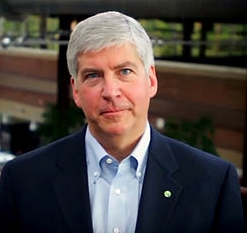
Gov. Rick Snyder signed two campaign finance bills accounting for the U.S. Supreme Court ruling in Citizens United into law on September 20, 2017.
Senate Bill 335 excludes an independent expenditure from the definition of a contribution and defines independent expenditure committees.
Senate Bill 336 incorporate violations established in Senate Bill 335 into the Code of Criminal Procedure.
The bills are effective immediately.
September 20, 2017 •
Two Campaign Finance Bills Pass Michigan Legislature
The Michigan Legislature passed two campaign finance bills accounting for the U.S. Supreme Court ruling in Citizens United from 2010. Senate Bill 355 excludes an independent expenditure from the definition of a contribution and defines independent expenditure committees. Senate Bill […]
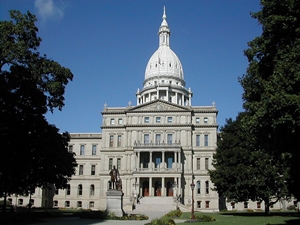 The Michigan Legislature passed two campaign finance bills accounting for the U.S. Supreme Court ruling in Citizens United from 2010.
The Michigan Legislature passed two campaign finance bills accounting for the U.S. Supreme Court ruling in Citizens United from 2010.
Senate Bill 355 excludes an independent expenditure from the definition of a contribution and defines independent expenditure committees.
Senate Bill 336 incorporates violations established in Senate Bill 335 into the Code of Criminal Procedure.
Opponents of the bills argue it would allow candidates to raise unlimited contributions for independent expenditure committees, often referred to as super PACs.
Gov. Rick Snyder has 14 days upon receipt of the enrolled bills to sign or veto them.
November 9, 2016 •
California Proposition 59 to Overturn Citizens United Passes
On November 8, California voters approved a proposition directing state elected officials overturn Citizens United. Overturn of Citizens United Act Advisory Question (Proposition 59) asked voters to affirm state elected officials should use all constitutional authority, including, but not limited […]
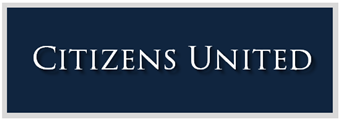 On November 8, California voters approved a proposition directing state elected officials overturn Citizens United.
On November 8, California voters approved a proposition directing state elected officials overturn Citizens United.
Overturn of Citizens United Act Advisory Question (Proposition 59) asked voters to affirm state elected officials should use all constitutional authority, including, but not limited to, proposing and ratifying one or more amendments to the U.S. Constitution to overturn Citizens United and other applicable judicial precedents to allow the full regulation or limitation of campaign spending. The proposition also directs the officials to act to make clear corporations should not have the same constitutional rights as human beings.
As of 5:00 a.m., with over 90 percent of the precincts reporting, the proposition passed 52.4 percent to 47.6 percent, according to the California Secretary of State’s office.
July 22, 2016 •
NYCU Video Digest – July 22, 2016
Here is our latest edition of the News You Can Use Video Digest. Have a great weekend! NYCU Video Digest was produced by 2016 interns Brittany Anderson and Clémence Besnard for State and Federal Communications.
Here is our latest edition of the News You Can Use Video Digest. Have a great weekend!
NYCU Video Digest was produced by 2016 interns Brittany Anderson and Clémence Besnard for State and Federal Communications.
July 18, 2016 •
If Elected, Clinton to Propose Constitutional Amendment to Overturn Citizens United in First 30 Days
On July 16, presidential candidate Hillary Clinton announced she will “propose a constitutional amendment to overturn Citizens United” in her first 30 days in office if elected president. The announcement, in a video created by Clinton, was played at Netroots […]
 On July 16, presidential candidate Hillary Clinton announced she will “propose a constitutional amendment to overturn Citizens United” in her first 30 days in office if elected president.
On July 16, presidential candidate Hillary Clinton announced she will “propose a constitutional amendment to overturn Citizens United” in her first 30 days in office if elected president.
The announcement, in a video created by Clinton, was played at Netroots Nation, a politically progressive conference held this past weekend in St. Louis, Missouri. In the video, Clinton says she will “appoint Supreme Court justices who understand that this decision was a disaster.”
Clinton has previously championed the establishment of a small-donor matching system for presidential and congressional elections.
State and Federal Communications, Inc. provides research and consulting services for government relations professionals on lobbying laws, procurement lobbying laws, political contribution laws in the United States and Canada. Learn more by visiting stateandfed.com.

